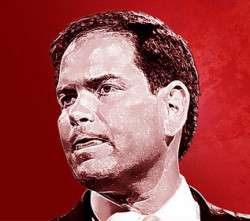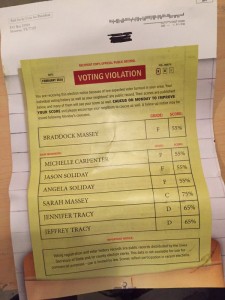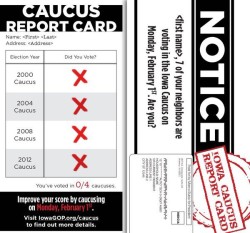Monthly Archives: February 2016
Samuel Garner is less than happy about the amount of debt he accumulated in service to his education. You can read the Ordinary Times discussion on the piece, and the consensus is not favorable to Mr Garner. I wanted to focus a bit on the last couple of paragraphs:
But that doesn’t get to the heart of the systemic problem: Education is outrageously expensive and too risky; schools indoctrinate students and their families with lofty ideals and benefit from their ignorance without accountability; and students and their families can borrow at unprecedented rates, allowing schools to continue hiking tuition. Though its advent was surely well-intentioned, our loan system is confusing and exploitative. In a country we often think of as a meritocracy, it’s appalling that we have an education system that frequently does more to punish students for getting educated than it does to reward them.
Ultimately, like many other enlightened countries that recognize education as a critical public good—foundational to the economy and a just society—we need to move toward free public education, including graduate school. Where will this money come from? Given the billions we spend on federal student loan programs and the disgusting amounts of money many college presidents and administrators make, I’m sure there’s plenty of money that could put us in the right direction. To start, we need more substantial efforts to refinance and forgive student debt. There are millions of people like me who would like to get on with their lives.
As is often the case with these sorts of piece, they conflate numerous things and try to shoehorn them all into the same issue. And as is often the case with pieces like this, they choose some of the worst case instances imaginable.
For example, he wants to move towards “free public education” but his experience is with… a private school. So right there, he had a very good, less expensive alternative that he did not avail himself of. He mentions the University of Wisconsin as a possibility, only to dismiss it as “still leaving him in debt.” At no point does he seem to express regret that he didn’t do what he could to lower the costs. He admits error, but that’s not the same thing. Just as he says that no degree is worth $240k, without giving any indication that if his choices were a degree for that much, Wisconsin-Madison for less, or no degree for zero dollars would be preferable.
For the right students, and the right schools, and the right majors, I am actually sympathetic to the notion that “college should be free.” But these are specific questions with specific answers. And if there is one thing that Garner was clear on, it’s that he is uninterested in specifics.
In 1984, the narrator mentions screens that enable the government to observe citizens in their own homes. Citizens were not permitted to turn these screens off. For quite a while I’ve seen a correlation between these surveillance screens and internet access, cell phones, and now i-phone technology, the main difference being that we choose to use them. We can turn them off, and we do, but we depend on them nevertheless.
These devices make us “observable” to others, not necessarily or only to the state, but in a way that potentially guides our actions and maybe even the way we think.
We buy things online. Most of those purchases are in principle more traceable than cash purchases and perhaps even more traceable than purchases by check. At any rate, Amazon seems to know what I might be interested when I log on. Our search terms are (or so I hear) somehow remembered by my Google and contribute to what comes up when we search. When I go to weather dot com, the site knows I live in or around Big City. I assume that it would be fairly easy to track down my real identity from the blogs I comment and write on, or at least narrow the identity to my apartment building. Even dumber technologies like my flip phone track my phone calls and messages and my time zone.
And this is mostly beneficial to me. All this connectivity is entertainment, shopping, and a way to express myself and talk with people online I would probably never get a chance to meet in real life. I’m part of online communities where in my own way I have a voice and an opportunity to speak my mind and learn from others. I have and use a Roku, which streams channels from the ‘net. I listen to music on YouTube.
This is all mostly voluntary. I choose to turn on my computer first thing when I get home. The computer remains on until I go to bed, even if I’m not using it.
Still, I can’t shake the thought that I’m patched into a world where I and my choices are observed or at least observable.
I don’t think I’m paranoid. If I were, I wouldn’t use the computer at all. Or I’d use it less often. Or I’d take greater precautions than I do to protect my anonymity. I don’t think government bureaucrats are monitoring my to’ing’s and fro’ing’s on the internet. I am wary of identity theft, but not that wary.
As I see it, I’m taking two gambles. The first is that my life and views are so uninteresting and so non-influential and enough on the mainstream that no one (I hope) sees any special need to track me down. The second gamble is that there are a lot of fish in the pond for identity thieves, and I hope the chances of me getting my identity stolen is lessened by some sort of law of numbers, in addition to sensible precautions I can take myself.
Above, I compared this situation with Orwell’s 1984. It’s not entirely a good comparison. I’m not arguing that being “observable” is totalitarianism. I’m not even arguing that being observable is the same thing as being observed. In some ways, by being more exposed and more “visible” to the online world, I enjoy greater privacy than people did before such things existed. I probably enjoy more privacy on the web in 2015 than I would, say, in a stereotypical small town or closed neighborhood or enclave where everyone knows everyone else’s business.
But there’s also something not quite voluntary about it even though I choose it freely. It makes me uneasy.
 I can only hope that this changed some votes in the right direction.
I can only hope that this changed some votes in the right direction.
An expert assessing the importance of Donald Trump’s short fingers.
This map of age differences at marriage looks mostly as one might expect, but it’s less of a thing than I would have guessed in China. Gannon, I’m sure, would be disappointed in Argentina being dark blue.
Whites gain more from the social safety net than blacks, proportional to poverty numbers.
Greg Branch writes of Flint, and how it all unfolded.
A teenager in Germany who sparked outrage by claiming to have been raped by a refugee admits to making it up. There’s a definite left-on-left angle with that one…
Marcus Winters reports that charter schools are better at retaining hard-to-educate students, suggesting that maybe the notion that they’re tossing out the low-achievers may have less merit than some suppose?
Roosh, the ally of A Well Known Sex Blogger, has been getting a lot of attention lately.
Housing in New Jersey is expansive. A lot of communities are seeking to keep it that way. Relatedly, and even less surprisingly, resident participation in city planning has some pretty ill-effects.
Carbon dioxide emissions may be making forests more resilient!
Dylan Matthews reports that giving poor people money is good for the recipients and maybe not so good for those around them, but it’s unclear. Relative wealth and relative income are tricky.
Residents of Boulder have found a new, inventive argument to oppose more housing: Pet density.
Walmart coming to a town can be a glorious event. When it leaves, though, it hurts.
Turns out, it’s a bad idea to hire toxic people.
How North Dakota became an epicenter for drone development. Setting aside my usual giddiness with the exploitation of non-coastal human resources and development, the great expanse really is good for this sort of thing.
So… Rubio had a pretty bad night. Not much point in denying that. Some have been arguing that this is the first time Rubio’s been a big target, but that really isn’t true. From a comment I left the other day:
I’m not sure it won’t. That was a huge thing early on, but has become less so with time because he has been getting a lot of negative attention. R2R carpetbombed the Iowa airwaves, and elsewhere. Cruz has been taking shots and really ramped it up over the past week. Trump has taken shots. Kasich’s people took a shot. Talk radio has taken shots. His views on immigration came up in the most unflattering way possible in the last debate, and was brought up in previous debates (in one of which he was Target #1), and he’s still standing.
So while I’m not-at-all sure it won’t happen, there is quite a bit of reason to believe that the obvious liabilities have already played out. There may be some as-yet unfound non-obvious liabilities, but that’s an unknown unknown at this point.

Photo by DonkeyHotey 
The only upshots for Rubio are fortuitous timing (in a way) and a potential to demonstrate solid support if it exists. In the former case, the Superbowl is today and a lot of the focus will be there today and tomorrow and the election is Tuesday. Also, because it was on a Saturday Night, SNL didn’t get a crack at him. In the latter case, if he comes out of New Hampshire looking unfazed by this, then that will be more to his benefit than if the disaster had not occurred. It would indicate that his support has some depth, and that he can weather mistakes.
I don’t believe the upshots will outweigh the bad. I’m looking beyond the primary here and to the general election. We’ve had a vague sense of what his weaknesses as a candidate are, but this crystalized the image. A lot of critics are going with Rubio-as-a-robot, which I actually think is wrong. Rubio comes across as warm in a way that HRC and Mitt don’t, especially. But it does point to a concern I had earlier but that he alleviated in earlier performances: That he’s an empty suit. A Ken Doll. A wind-up doll of sorts. This solidifies those concerns and if this is indicative of where he will be in November, that’s not good for the GOP. If Hillary Clinton ever finds her groove, Rubio will go down in the same way that Thomas Dewey did: As the candidate dismissed as the groom on a wedding cake.
So, without further ado, going into New Hampshire, here is how the race looks for each of the candidates:
Marco Rubio
1st Place: He’s the nominee.
2nd Place: His odds improve considerably if he has some separation here (as looked more likely before the debate than after). Especially if Cruz is #3. If he’s a weak #3, the road gets narrower with more potential for a fourth candidate making things more difficult for him. The key is separation, by either five or more points or Cruz standing in between him and Jeb/Kasich/Christie.
3rd Place: If behind Cruz, he needs a good debate performance ahead of South Carolina but can rebound. If behind Kasich, Christie, or especially Jeb, his odds decrease considerably.
4th Place: He can win, but the path is very narrow. Who got third? That’s the question.
5th Place: He’s done.
Ted Cruz
1st Place: He’s going to be very difficult to beat.
2nd Place: Unless behind Rubio, he’s in very good shape. Possibly to being a 50/50 proposition.
3rd Place: He’s still in good shape. My odds for him go up.
4th Place: He’s still in the race, but needs to rebound in South Carolina.
5th Place: he’s still in the race, but must do well in South Carolina.
Donald Trump
1st Place: This is expected. His odds improve, but not greatly. It’s South Carolina where he is going to need to prove himself.
2nd Place: He’s not done, but his path becomes narrower.
3rd Place: He’s done.
4th Place: He’s done.
5th Place: He’s done.
Jeb Bush
1st Place: I don’t even know.
2nd Place: Unless Rubio is close behind, he’s probably slayed Rubio and become the third viable candidate.
3rd Place: He’s hurt Rubio a great deal and we’re probably looking at a four-man race with good implications for Cruz (and Trump), or a three-man race with Rubio dead.
4th Place: Not enough, but he’ll probably fight on. Especially if he beats Rubio.
5th Place: He will be under some very intense pressure to drop out.
John Kasich
1st Place: I don’t even know.
2nd Place: He will probably be a factor in the race in the short-term, but it’s unclear he has long-term potential. Once NH is exposed as the one-off it probably he, he’s likely to become an afterthought before Super Tuesday.
3rd Place: If he’s ahead of Rubio, probably a short-term factor. If behind, probably not.
4th Place: He’s done.
5th Place: He’s done.
Chris Christie
1st Place: I don’t even know.
2nd Place: Probably a factor in the short-term, slightly more long-term factor potential than Kasich.
3rd Place: If he’s ahead of Rubio, probably a short-term factor. If behind, probably not.
4th Place: He’s done.
5th Place: He’s done.
Note: I am a bit down on Christie this cycle. But I think more than anyone else, he has set himself up to potentially be a viable candidate in 2020.
 From the Thursday night Democratic Debate:
From the Thursday night Democratic Debate:
MADDOW: Senator Sanders, as a Vermonter, you have almost a home state advantage here in New Hampshire. But back home across the border, you also have a long history of running against Democrats as a third-party candidate, for governor, Senate, for Congress.
In 1988 your candidacy as a third-party candidate arguably cost the Democrats a congressional seat and sent a Republican instead.
How can you lead the Democratic Party nationally when you have not been a member of the Democratic Party until very recently?
SANDERS: Well, Rachel, actually, that wasn’t accurate. In 1988 the Republican did win, I believe, by 3 points. I came in second. It was 34-31, I think, 19 for the Democrat. In that race the Democrat was the spoiler, not me. And it is true…
@AlbertsonB2 Came to twitter just to say this.
— Alex Branham (@JAlexBranham) February 5, 2016
@trumwill ok, not a good answer in my class though.
— Bethany Albertson (@AlbertsonB2) February 5, 2016
Well, if I were in a class I would prefer a response more along the lines of “Show your work.” So here goes… (more…)
As I suspected: If you randomize the sentences in a Trump speech, the speech doesn't become any less coherent. pic.twitter.com/vnc1nGloUR
— Kevin D. Williamson (@KevinNR) February 3, 2016
@KevinNR If randomized text is indistinguishable from the original, then its information content is zero. That’s a theorem.
— Gerard Harbison (@GerardHarbison) February 4, 2016
—
For comparison: One actual Trump debate answer, one Trump's answer run through the randomizer. Which is which? pic.twitter.com/LfsWghLq2e
— Kevin D. Williamson (@KevinNR) February 4, 2016
@KevinNR *frantically points loaded revolver back and forth between the two quotes* I, I don't know which one to kill…
— D Stu (@purepolka) February 4, 2016
Some years back I met a guy who eagerly billed himself as “the angriest mayor in America.” He was coming to speak to some of our students. He eagerly told me that he hated economists, except this one economist, a guy who unlike all the other economists told it like it really is. He then proceeded to spin some bullshit that, of course, nearly every economist rejects. But he’d found that one guy with an Econ PhD who confirmed his economic beliefs, and that was the evidence he needed to support his claim that he was right and almost all economists were wrong.
Bryan Caplan would surely shake his head in amused or weary acknowledgement of the mayor’s foolishness. And yet Caplan has done the same, in choosing Thomas Szasz as his go-to psychologist. Szasz argued that the mental illness/disease model was wrong, and that “there is no such thing as ‘mental illness’” (source). Although rejected (at least in his more extreme pronouncements) by the majority of the psych profession,* Szasz confirms for Caplan what Caplan wants to be true about psychology. That is, Caplan wants to treat these issues as merely one of preferences. (more…)
I don’t have a whole lot to add that everyone else isn’t saying. Good for Cruz, good for Rubio, not good for Trump.
How bad it is for Trump is uncertain, but no candidate in recent memory has put so much stock on “winning” and so I wouldn’t be surprised if it made an unusually large dent. Fortunately for him, he has quite a cushion in New Hampshire and so he can still lose a chunk of support, come out on top, and be able to brag about being the Comeback Otherkin. Helping him further is that two of the next three early contests are primaries, and thus Trump will be less reliant on the ground game he doesn’t seem to have and there will be less friction for outsider participation.
On Cruz, I think people are underestimating the importance of this victory. It was not entirely unexpected, but it was necessary. That Trump ended up much closer to Rubio than to him makes it even better. The two-man race between them has gotten more interesting, and he will no longer be criticizing Trump (to the extent that he does) from a position of weakness. It may also help him weather what is likely to be a weakish showing in New Hampshire, to get back down to South Carolina where he is more likely to do well. Cruz didn’t overperform by too much, but he met some important expectations.
Some are irked about Rubio claiming victory despite getting third place, and his victorious posture could indeed backfire. But the reason he is getting the attention is that he really, really outperformed expectations. Further, he did it despite being the recipient of an unusually large number of attacks in a state where, up until a few weeks ago, he hadn’t been paying much attention. He’d been staking his claim in New Hampshire, but his people seemed to wisely make the determination that to succeed in New Hampshire he needed to separate himself in Iowa, which he did. The two man race became a three man race.
There is still room for one more. There were four major candidates in both 2008 and 2012 once the ball got rolling. On the other hand, one of them was Ron Paul in each case. So three is the more likely number, and the above are most likely the three.
Not much to say on the Democratic side. It’s still Hillary’s race. The degree of trouble she seems to have with races she should win might should trouble Democrats, but it is not seeming to. Which is probably just as well because it’s pretty unclear what they can do about it now.
So, in review, primaries are terrible because Donald Trump. Not having (competitive) primaries are terrible because Hillary Clinton.
Choose your poison.
 Related to recent conversations around here, some union leaders are worried about Trump’s appeal to their rank-and-file.
Related to recent conversations around here, some union leaders are worried about Trump’s appeal to their rank-and-file.
Apparently, the four militia members in Oregon are interested in standing down – and Ammon Bundy wants them to but Cliven doesn’t – but don’t want to go to jail. That’s something they should have thought about before, I think.
I love this Ted Cruz snub video so much.
Oh my god there is a giant gas cloud that’s going to consume us all! Alternately, why we have about 30,000,000 years go get off this rock (and out of this galaxy).
I understand the point that Sumner is trying to make here, and I think that class bias is a part of it, but the other part of it is that college offers an easier mechanism for intervention. The mechanisms he refers to for the others are… more intrusive.
NPR lists out six alternatives to our current primary system. It’s no good having Iowa and New Hampshire hard-coded in, but I’ll take just about anything over a National Primary (or, really, any system that places undue importance on a handful of large states that might as well be their own countries). I favor the Ohio Plan (with some tinkering).
OPEC may have started a price war, but rich investors are going to make winning it hard.
Wendell Cox looks at the most and least housing-affordable cities in the world. USA! USA! USA! (Excluding California.)
Los Angeles City Council is combatting the dangers of second hand snuff. (Well, technically, I think this calls under the category of fourth-hand, the dangers of seeing people use tobacco products.)
Peter Suderman argues that Hollywood is stuck in expanded universes. I think such things have been a great advance, a form of continuation without the repetition of sequels.
A theater in Idaho is in hot water for serving alcohol at a Fifty Shades of Gray showing and may lose its liquor license. Eugene Volohk believes there’s a First Amendment case.
Teens aren’t so sure that there’s anything wrong with porn, but come down hard of failing to recycle.
The friendship between a goat and a tiger that warmed our hearts has come to a tragic end. Not that tragic! The goat is fine! The tiger just got tired of being bossed around is all.
The Dixie Chicks are finally on tour in the US again. The question being… is their divorce from country music final?
Stanford has a new pilot program to blend computer science and the humanities. Relatedly, a recent meta-analysis reveals the obvious, that college majors and personalities tend to be related.
Ted Cruz got a little bit of bad publicity for some campaign mail he sent out:
As Iowans prepare to head to the caucuses on Monday for the nation’s first votes in the presidential primaries, the campaigns are pulling out all the stops. The mailer sent out by one Republican campaign, however, might end up backfiring.
Tom Hinkeldey, a resident of Alta, Iowa, tweeted a photo (which was later deleted because it included his personal address) on Friday evening of a mailer Sen. Ted Cruz’s campaign sent addressed to his wife, Steffany. The mailer was a large card printed to look like a manila envelope on one side and was labeled in all capital letters, “ELECTION ALERT,” “VOTER VIOLATION,” “PUBLIC RECORD,” and “FURTHER ACTION NEEDED.”
 This rubbed some people the wrong way. Not the least of which was Hinkeldey, who claims to have been motivated by this to go out and vote for Rubio.
This rubbed some people the wrong way. Not the least of which was Hinkeldey, who claims to have been motivated by this to go out and vote for Rubio.
This sort of nudging and neighbor-shaming isn’t new. Kolohe reports that he’s gotten it from Democrats, though with a more encouraging tone. D Hawkins reports that MoveOn did it in 2012, and some have claimed that Obama himself did it.
Fans of Cruz cried foul and some theories were bandied about that it was a photoshopping job or a false flag attempt. I almost believed it, but in an indifferent sort of way. Basically, if it was a false flag then it was wrong (and illegal), but Cruz chose to be the kind of person that you look at this and think, “Yeah, that seems like something he would do.”
Stages:
1. Denial
2. Photoshop
3. Blame rival campaign
4. Oh hey, great mailer! Just a gentle reminder of American Constitutional duty!
— D. Hawkins (@HawkinsUSA) January 30, 2016
 As it happens, the Cruz campaign not only admitted doing it, but in typical Cruz fashion the candidate loudly refused to apologize for his love of democracy and voting. Rubio didn’t come out and condemn the mailers, but he said he was puzzled by the intent and the tone. His focus on those things may be significant, because, shortly thereafter, what might have been a point of differentiation between Cruz’s rough manner and Rubio’s more conciliatory manner collapsed with the revelation that the Rubio campaign appears to have sent out a very similar document. Similar, but not the same. The part that made the hair on the back of my neck stand up with Cruz was that it named names with an implicit threat of your name being before them. That’s more than what MoveOn did, which was encourage. It’s more than what Rubio did, by tut-tutting a bit. While I’m not entirely comfortable with the Rubio tack, the tone is rather different. It doesn’t come across as officially as Cruz’s does, and perhaps most importantly it doesn’t name those names.
As it happens, the Cruz campaign not only admitted doing it, but in typical Cruz fashion the candidate loudly refused to apologize for his love of democracy and voting. Rubio didn’t come out and condemn the mailers, but he said he was puzzled by the intent and the tone. His focus on those things may be significant, because, shortly thereafter, what might have been a point of differentiation between Cruz’s rough manner and Rubio’s more conciliatory manner collapsed with the revelation that the Rubio campaign appears to have sent out a very similar document. Similar, but not the same. The part that made the hair on the back of my neck stand up with Cruz was that it named names with an implicit threat of your name being before them. That’s more than what MoveOn did, which was encourage. It’s more than what Rubio did, by tut-tutting a bit. While I’m not entirely comfortable with the Rubio tack, the tone is rather different. It doesn’t come across as officially as Cruz’s does, and perhaps most importantly it doesn’t name those names.
Erica Grieder, who seems to tentatively support Cruz, came to the defense of the mailers (including the naming of names):
1) They both seem weird and obnoxious to me. However, I have no frame of reference for what campaigns do in states with real elections.
— EricaGrieder (@EricaGrieder) January 31, 2016
2) I am aware that similarly weird-and-obnoxious tactics have proven effective in a variety of contexts.
— EricaGrieder (@EricaGrieder) January 31, 2016
3) For example, utilities have shamed customers over their power usage (including relative to their neighbors): https://t.co/5Vt8auaByq
— EricaGrieder (@EricaGrieder) January 31, 2016
4) Assigning Florida schools an A-F rating, ironically (I think), was one of Jeb Bush’s signature, tho shamey, reforms as Florida governor
— EricaGrieder (@EricaGrieder) January 31, 2016
5) All of this is consistent with Cass Sunstein’s “libertarian paternalism”, which I think is gross but many of you support
— EricaGrieder (@EricaGrieder) January 31, 2016
6) I’m also reluctant to make assumptions about how Iowans see these mailers. They seem to have differential norms about voting.
— EricaGrieder (@EricaGrieder) January 31, 2016
In any event, the Cruz mailer has been condemned by the Secretary of State for looking like an official document. Perhaps more damning, though, it looks like they may have just made the numbers up.
